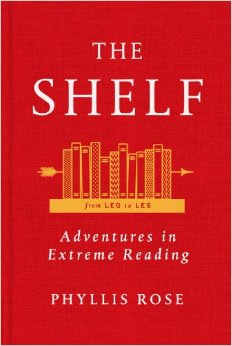- HOME
- INTRO TO THE FORUM
- USE AND MISUSE
- BADLY WRITTEN, BADLY SPOKEN
- GETTING
TO KNOW ENGLISH - PREPARING FOR ENGLISH PROFICIENCY TESTS
- GOING DEEPER INTO ENGLISH
- YOU ASKED ME THIS QUESTION
- ADVOCACIES
- EDUCATION AND TEACHING FORUM
- ADVICE AND DISSENT
- MY MEDIA ENGLISH WATCH
- STUDENTS' SOUNDING BOARD
- LANGUAGE HUMOR AT ITS FINEST
- THE LOUNGE
- NOTABLE WORKS BY OUR VERY OWN
- ESSAYS BY JOSE CARILLO
- Long Noun Forms Make Sentences Exasperatingly Difficult To Grasp
- Good Conversationalists Phrase Their Tag Questions With Finesse
- The Pronoun “None” Can Mean Either “Not One” Or “Not Any”
- A Rather Curious State Of Affairs In The Grammar Of “Do”-Questions
- Why I Consistently Use The Serial Comma
- Misuse Of “Lie” And “Lay” Punctures Many Writers’ Command Of English
- ABOUT JOSE CARILLO
- READINGS ABOUT LANGUAGE
- TIME OUT FROM ENGLISH GRAMMAR
- NEWS AND COMMENTARY
- BOOKSHOP
- ARCHIVES
Click here to recommend us!
READINGS IN LANGUAGE
This section features links to interesting, instructive, or thought-provoking readings about the English language and related disciplines. The selections could be anywhere from light and humorous to serious and scholarly, and they range widely from the reading, writing, listening, and speaking disciplines to the teaching and learning of English.
A shelfie experiment in pursuit of “off-road” fiction readings
What kind of reader of literary fiction are you? Are you the type who’d choose or buy a book only if it’s favorably recommended by a trusted friend, by your peer group, or by regular book critics in the mass media or social media? Or do you independently make your choices by browsing the bookstores for subjects, authors, and titles that suit your personal taste and reading criteria?

Whichever way you choose your fiction readings, it’s unlikely to be anywhere close to how literary critic and writer Phyllis Rose made her choices of books to read in the fall of 2011. She made the idiosyncratic decision of selecting a particular shelf of fiction in a New York City subscription lending library and set out to read all of the books she found there. Her rationale for doing that: “Believing that literary critics wrongly favor the famous and canonical—that is, writers chosen for us by others—I wanted to sample, more democratically, the actual ground of literature.”
This experiment and adventure in “off-road” reading—“To go where no one has gone before… To ski fresh powder in the backcountry of the Rockies,” Rose says—became the basis of her recently released book, The Shelf: From LEQ to LES: Adventures in Extreme Reading (Farrar, Straus and Giroux, 288 pages). Part literary criticism, part memoir, the book is now being touted as a contribution to the hybrid literary genre of the “shelfie”—an allusive play, of course, on the ubiquitous word “selfie” that recently entered the English lexicon.
Says Priscilla Gilman, former professor of English literature at Yale University, in a review of The Shelf for the Boston Globe: “Rose embraces her shelf with ‘immense tenderness’ and dives into its contents with contagious enthusiasm, carrying us along on her ‘exhilarating’ journey… Not all the books Rose discusses are good. Many, in fact, are clichéd, overwritten, ‘dull, even lethally so.’ But Rose shows us that there is still worth to be found in them: They exemplify a culturally significant attitude, capture a historical moment, create archetypes with lingering power, unmask our prejudices, body forth an essential yearning or truth.”
Read Priscilla Gilman’s review of Phyllis Rose’s The Shelf in the Boston Globe now!
Read Elaine Showalter’s “The Rise of the Shelfie” in Chronicle.com now!
Read an excerpt from Phyllis Rose’s The Shelf in US.Macmillan.com now!
ABOUT THE AUTHOR:
Phyllis Rose is the author of A Woman of Letters, a biography of Virginia Woolf that was a finalist for the 1979 National Book Award; Parallel Lives: Five Victorian Marriages; Jazz Cleopatra: Josephine Baker in Her Time; The Year of Reading Proust: A Memoir in Real Time; and two collections of essays. She graduated from Radcliffe College in 1964, summa cum laude, and later obtained an MA in English literature from Yale University. She completed her graduate studies at Harvard University, where she obtained a Ph.D. in 1970 with specialization in 19th-century English literature.
OTHER INTERESTING READINGS:
Nom de plume, anyone? In “What’s in a name? How a writer’s name can make or break the popularity of their work,” an article that came out in the May 14, 2014 issue of The New Statesman, Oliver Farry says that many writers and performing artists adopt pseudonyms to overcome what they might perceive as social obstacles—like women writers taking on male pen names to boost their competitiveness in what used to be a male-dominated literary industry, or writers or actors of either gender adopting ethnically ambiguous names to protect their literary works or screen/stage persona from being racially discriminated upon. Farry says that in the case of writers in particular, they do it not just because of pragmatic, hard-nosed economic logic but also for the liberating potential of being able to express themselves freely, unencumbered by the social constraints of their private life.
Read Oliver Farry’s “What’s in a name?” in NewStatesman.com now!
Just for the pun of it. In “Without Compunction,” an article that came out in the May 20, 2014 issue of The Paris Review, Ted Trautman says that the only thing harder than crafting a good pun is finding someone to appreciate it. “It’s not that puns are universally reviled—though their critics make it seem that way,” Trautman says. “It’s just that for every person who loves a clever play on words, there exists another who absolutely despises them; in mixed company, puns are, along with politics and religion, best left alone.”
Read Ted Trautman’s “Without Compunction” in The Paris Review now!
Click to read comments or post a comment
View the complete list of postings in this section
(requires registration to post)





